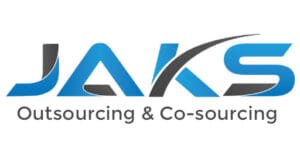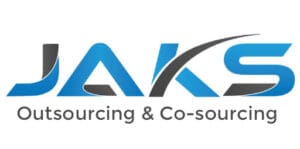
Business valuation is a key part of any merger or acquisition. It provides a clear picture of a company’s financial worth, helping buyers and sellers to make proper decisions. In Australia, where industries are evolving rapidly and M&A activity is on the rise, accurate valuation is essential for building trust and securing fair deals.
Whether you’re acquiring, selling, or merging a business in Australia, understanding valuation methods and local factors can make the difference between a successful transaction and a costly mistake. JAKS provides expert valuation services in collaboration with CA and CPA firms, offering reliable support for informed financial decisions.
Importance of Business Valuation in M&A

Business valuation is more than assigning a price tag to a company. It involves a comprehensive assessment of a company’s value and worth. It helps identify risks, uncover hidden opportunities, and guide negotiations. For buyers, it ensures they’re not overpaying. For sellers, it protects them from undervaluing their business.
In Australia, mergers and acquisitions (M&A) deals are common across various sectors, including mining, technology, retail, healthcare, and finance. As regulations and market expectations become more complex, valuation serves as a safeguard for both parties.
Common Valuation Methods Used in Australia

Income Approach
This method looks at the future income a business is expected to generate.
- Discounted Cash Flow (DCF): Projects future cash flows and discounts them to present value. Suitable for growing companies in Australia’s tech or service sectors.
- Capitalisation of Earnings: Used for businesses with stable, predictable earnings.
Market Approach
This method compares the business to similar companies in the same industry.
- EBITDA and revenue multiples are applied based on recent sales or public data.
- Widely used for small to mid-sized businesses in Australia, particularly in retail and hospitality.
Asset-Based Approach
This focuses on the net value of a company’s assets and liabilities. Common in asset-intensive sectors such as manufacturing, construction, and mining, which are significant to the Australian economy.
Key Factors Affecting Valuation in Australia

Several local factors can impact a business’s value:
- Economic conditions: Inflation, interest rates, and consumer confidence affect market expectations.
- Industry performance: Certain sectors in Australia tend to perform better during specific economic cycles.
- Regulatory environment: Compliance with Australian laws, including tax and labour rules, influences value.
- Location: A business in a major city, such as Sydney or Melbourne, may be valued higher than one in a remote area.
- Reputation and goodwill: Customer loyalty, brand strength, and management quality add intangible value.
Role of Due Diligence in Valuation
Due diligence verifies whether the financial and operational data used in valuation is accurate. This includes:
- Checking financial statements
- Reviewing legal contracts
- Assessing tax records
- Analysing operational risks
- Verifying asset ownership and condition
In Australia, due diligence is a standard part of any M&A transaction and often involves accountants, legal advisors, and industry specialists.
Valuation in Cross-Border Mergers and Acquisitions
Australia is a popular target for foreign investment, thanks to its stable legal system and open economy. However, international buyers must consider additional valuation complexities:
- FIRB approval (Foreign Investment Review Board)
- Currency exchange risks
- Differences in tax structures and accounting standards
- Cultural and regulatory differences
Engaging local advisors familiar with Australian M&A laws ensures the valuation process remains accurate and compliant.
Common Valuation Mistakes to Avoid
Mistakes in valuation can lead to overpaying, underpricing, or failed deals. Some common pitfalls include:
- Relying only on past performance
- Ignoring market trends or future risks
- Misjudging working capital requirements
- Overlooking intangible assets like intellectual property or brand value
- Not using a third-party expert for unbiased evaluation
Avoiding these mistakes helps ensure a smoother M&A process, especially in a market as structured as Australia’s.
In any merger or acquisition, valuation is one of the most important steps. It fosters transparency, builds trust, and lays a solid foundation for effective negotiation. In Australia, where industries are diverse and regulations are clear, proper business valuation is more than just a financial check—it’s a strategic move.
At JAKS Australia, we help CA and CPA firms as well as business advisors by providing expert support with business valuations and transactions. Our goal is to make your work easier by giving you clear, accurate, and on-time valuation reports for mergers, acquisitions, or other business decisions. We understand Australian rules and market trends well, and we work as part of your team to help you give smart, reliable advice to your clients.
JAKS helps to make complex valuation work simpler for your firm, so you can focus on delivering high-value advice to your clients. Get in touch with us at +61 402 554 052 or email [email protected] to find out how JAKS can support your team.




